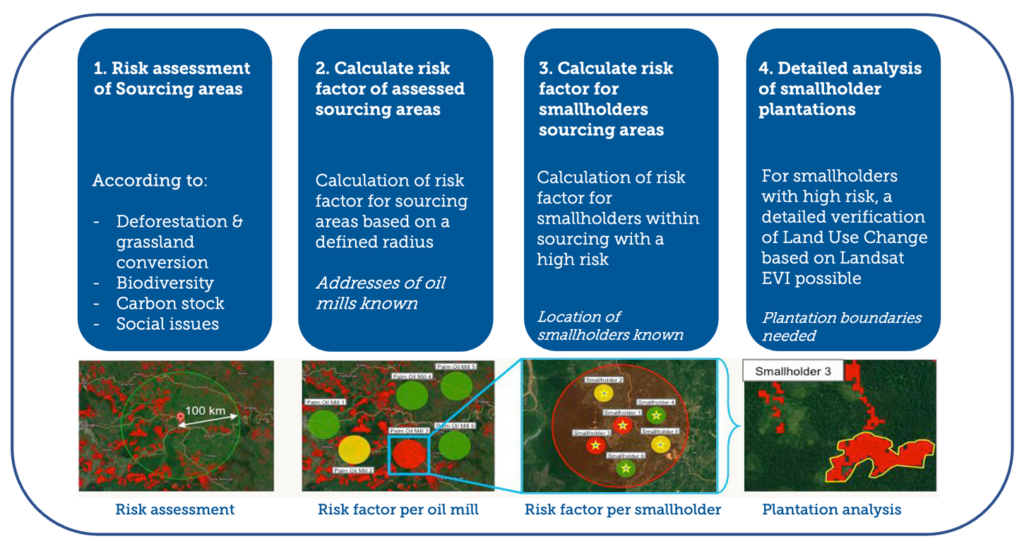Beyond Certification: The ISCC Landscape Approach
Sometimes, organised or independent smallholders see the expansion of their plantation area as the only viable option to increase income. Unfortunately, this voids the eligibility to become certified and bears the risk of further deforestation.
The ISCC landscape approach aims to mitigate sustainability and deforestation risks and requires focused measures implemented by different actors in a region. Those measures include re-planting activities, fire-fighting, micro-financing and the preparation of a risk analysis.
A risk analysis of the sourcing area can reveal those areas which are exposed to the highest risks of deforestation activities and a violation of sustainability criteria. The risk analysis can be performed using the GRAS (Global Risk Assessment Services) tool – a web-based tool offering geo-referenced information about ecological and social sustainability and land use change. The analysis allows its users to identify deforestation, replanting activities, grassland conversion and cropping activities.
Public institutions and district governments can manage activities for rural development and smallholder capacity building to prevent further deforestation through qualification of non-certified smallholders and plantations. In addition, certified producers, e.g. palm oil mills, can act as a role model for others in the region and take responsibility for their sourcing areas. They are an important pillar to support rural development in their regions.
Risk Evaluation in 4 Steps Using the GRAS Tool
